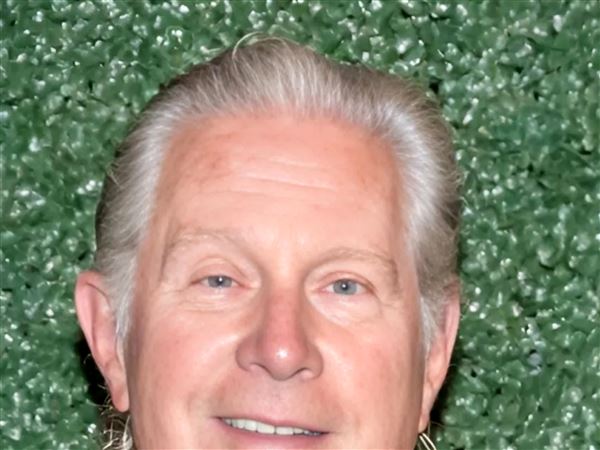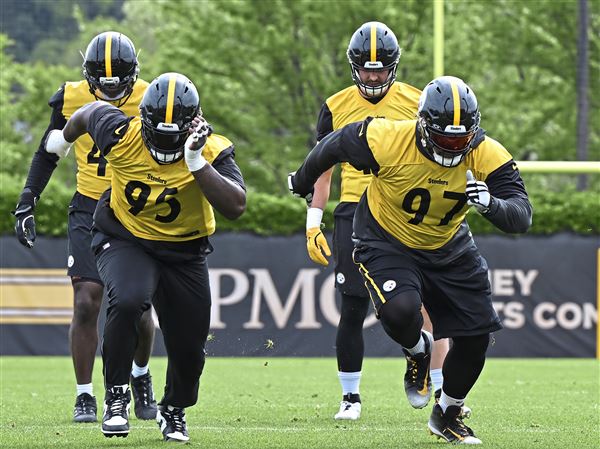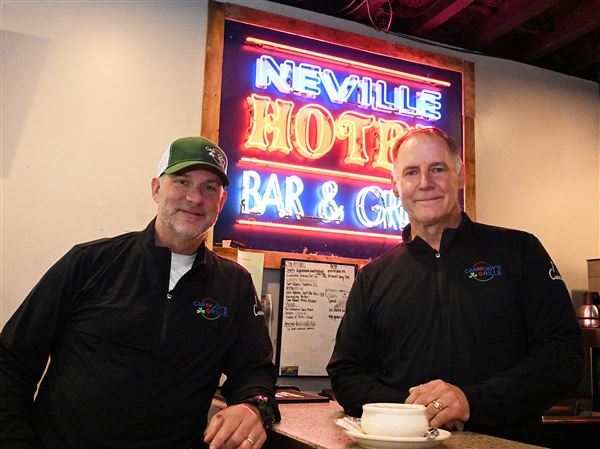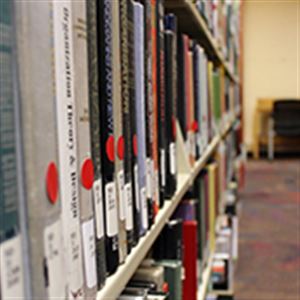Fred Rogers, when trying to make sense of 9/11, not only for kids but also for their parents, reverted to something his mother used to say.
Mr. Rogers’ mother taught him to “look for the helpers.”
Those seem like grounding words as we all wrestle with COVID-19 days.
How to live, and live well, in a slow-churning pandemic and a politically divided nation?
Look for the helpers — the first responders, and teachers, and sisters and brothers of mercy — and help them.
And maybe there is a corollary for dealing with the political divisions: Look for the mavericks. As you try to determine what to believe, look for the leaders, the journalists, the academics who seem not to have a permanent side or tribe, or at least can break away from that tribe when something bigger is at stake.
By something bigger I have in mind ideas like decency, due process and fair play, respect for evidence, love of country.
This is the advice I gave a bright bunch of high school students a few weeks back when one asked: Who can we trust to inform us?
I can’t point to any one source. Rather, I think each citizen, young or old, has to be his or her own curator — of data, information and commentary. He must ask of every source: Is he (it) fair, informed and open to change based on research?
That takes a certain amount of courage, because, in this society, it is very hard to stand alone. It is not only lonely, it is dangerous. You can get canceled. You can be voted off the island. You can have your character assassinated.
But if you want to be an engaged and informed and educated citizen, look for the mavericks.
I am thinking, in past politics, of people like congresswoman Shirley Chisholm, whose campaign slogan was a promise and a truth — “unbought and unbossed.” And of great mavericks of the Senate, like John McCain and Barry Goldwater, and Pat Moynihan and Gene McCarthy, and Wayne Morse.
But I am thinking, at this moment, of the secretary of state for the state of Georgia, Brad Raffensperger, who, though a Republican officeholder, and a presumably ambitious one, is willing to stand up to the president and his base and say that Georgia had a free and fair election. It has brought him and his family death threats. And he can probably forget about any political future in his party.
I am also thinking of a Democratic congressman from Illinois named Dan Lipinski, who lost his seat this year in a primary. He stood against his party on abortion, which he opposes. That is a politically suicidal position if you are a Democratic officeholder.
Mr. Lipinski voted with the Democratic Party 87% of the time. It wasn’t enough.
In journalism, I think of great mavericks of old — like I.F. Stone, and Meg Greenfield and Charles Krauthammer, and Dorothy Day. None of them ever met a cliché he or she didn’t slay. They were indeed “unbought and unbossed,” and persons of great intellectual honesty and moral courage. But they were exemplars of the rule, not exceptions to it. Once upon a time, virtually all journalists strove to be fair and independent. This is now a standard considered dated and quaint in much of the profession, especially among the young.
So, we should not be surprised that journalists are even less-trusted than politicians. And that citizens now get their information from the tribes they join.
Journalists like Andrew Sullivan, who take on both the crazy left, and their race and gender obsessions, and the nihilistic right, and their hatred for government, science and learning, are rare indeed — the exceptions that reveal the new norm.
But the loss of an independent press is a tragedy for the republic, just as surely as the president of the United States undermining the democratic process is a crisis for the republic.
When I think of great institutions of learning, I think of the New York City schools of 100 and 75 years ago; the old City College of New York (it was free but you had to be able to hack it); the University of Chicago in its heyday; West Point; and many places less known, like the College of Wooster, or St. John’s in Collegeville, Minn.
The modern college and university is seldom independent and unaligned. It is, too often, and also tragically, a cesspool of tribalism and groupthink, where students, instead of being taught to think, are indoctrinated and programmed. They leave school with a set view of the world, a comfortable blanket of prejudices. They graduate with the self-congratulatory certitude that they will never have to reason their way through life and its problems. They will never have to wrestle with free or disturbing speech. They have all the answers, the attitudes, the postures, down cold.
The schools where intellectual rigor, intellectual honesty, and mutual respect have a chance these days (other than the service academies) are probably small schools that have embraced rather than shed their religious heritages — like Waynesburg University and Grove City College in Pennsylvania or Cedarville University in Ohio.
If I were advising a college freshman I would give the same advice I gave the high school student about reading journalism. Be your own curator. Find the great teachers — the ones who make you (and themselves) think; the ones who question the unquestioned assumptions and momentary orthodoxies. Look for the mavericks.
Keith C. Burris is editor, vice president and editorial director of Block Newspapers (kburris@post-gazette.com).
First Published: December 6, 2020, 5:00 a.m.
















